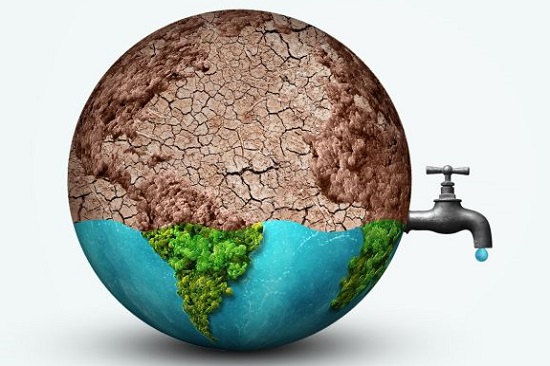| News Details |
Treated Water and Sustainable Development
2023-05-29

Assistant Professor Dr. Hala Arshad Ali
Water is a resource for which competition is increasing in many countries of the world due to economic and population growth, as well as urbanization to increased demand for water, while supply has remained unchanged and even declined due to climate change and rising temperatures, which has increased the intensity of competition, and despite the fact that the number of people globally deprived of access to an improved water source has halved over the past twenty-five years as poorer countries struggle to provide safe water and adequate sanitation. to all its citizens in a sustainable manner.
To sustain economic growth and protect and restore water-related ecosystems, many countries, including high-income countries, need to manage their water resources more effectively, and under these conditions attention has turned to the use of wastewater after treatment and purification, as water recycling is a sustainable approach and can be effective in the long term, as one-third of the treated water is used in agricultural irrigation and 20% is used to irrigate green spaces such as grass and golf courses. Especially in the United States of America, Australia and some European and African countries, Namibia, located in South Africa, boasts the world's first major treatment system for drinking water reuse, but so far only a small amount of wastewater that can be used is treated; in 2011, only 7% of wastewater was reused worldwide, constituting 0.6% of the amount of water used globally.
Iraq is one of the countries that hardly remember the process of wastewater treatment due to the weak capacity of the infrastructure for wastewater treatment, especially in rural areas, in addition to the fact that the water sector lacks the necessary knowledge of the efficiency of water reuse, although there are some pilot projects on the use of wastewater that has been treated in the water supply instead of pouring it into designated places and irrigating the landscape, as well as using it in agricultural irrigation, street cleaning, firefighting or thermal energy production. Flooring, industrial processing, commercial washing or used in construction.
Since Iraq suffers from an increase in droughts and may even deplete groundwater, with water experts expecting an increase in drought rates in the future and an increase in demand for water due to population growth, so the decision to resort to wastewater reuse is a possible solution by taking advantage of wastewater treatment technology, although there are disadvantages that it causes health problems if not treated properly and may cause damage to plants, but it is considered one of the most Integrated and more sustainable solutions by saving economic and environmental costs by not discharging polluted water and saving energy for the extraction and salinization of fresh water and providing usable water in dry and arid regions, the advantage of using treated water is also to reduce the need for synthetic fertilizers due to the presence of necessary elements in that treated water, reduce the over-extraction of groundwater, reduce nutrient loads to rivers, canals and other surface water resources, as well as enhance environmental protection by preserving wetlands and ponds, increasing employment and strengthening the local economy (such as tourism and agriculture).
#university_of_anbar
#Upper_Euphrates_Basin_Developing_Center









